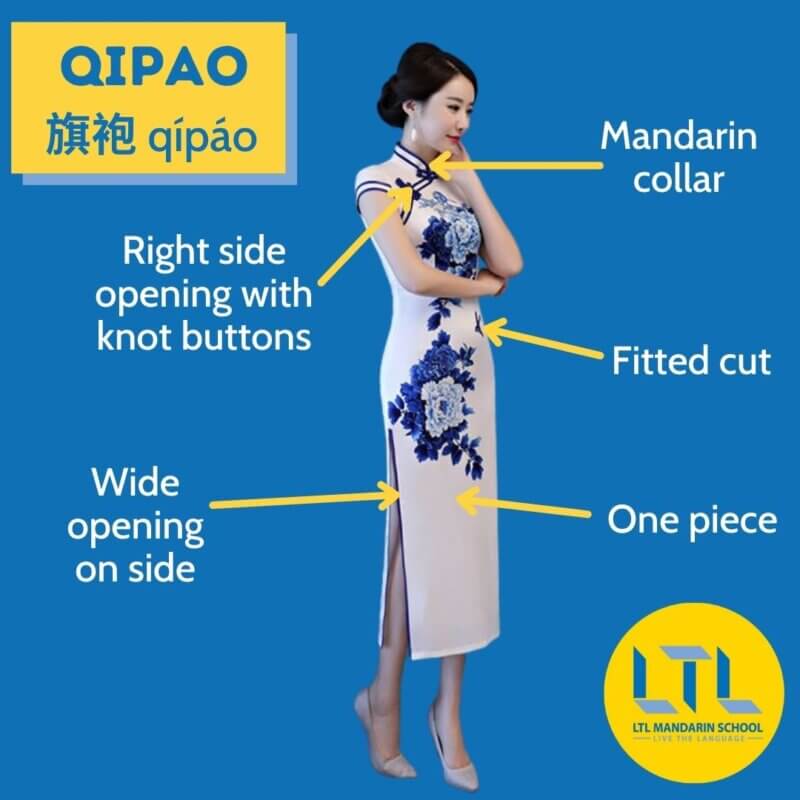What is Qipao: A Modern Classic
The qipao, a traditional Chinese dress, has transcended its cultural roots to become a timeless wardrobe essential for modern women. Its elegant silhouette and versatile design make it a staple for any fashion-forward individual. The qipao is more than just a piece of Clothing; it is a symbol of grace and femininity that has been embraced by women worldwide. Its allure lies in its ability to adapt to various occasions and personal styles while maintaining a sense of sophistication and poise.
Evolution of the Qipao
The history of the qipao is as rich and diverse as the women who wear it. Originating in the Manchu-ruled Qing Dynasty, it was initially a loose-fitting garment for Manchu women. Over time, the qipao evolved into a more form-fitting design, especially in the 1920s and 1930s, reflecting the changing social and cultural landscape of China. The evolution of the qipao is a testament to its adaptability and its ability to resonate with the evolving tastes and preferences of women.
:max_bytes(150000):strip_icc()/85642180-56a1422e5f9b58b7d0bd895f.jpg)
The Qipao in Fashion and Film
The qipao has been a favorite in the world of fashion and film, gracing the bodies of iconic figures and characters. From the silver screen to the red carpet, the qipao has been worn by celebrities and influencers, adding a touch of Eastern elegance to their ensembles. Its portrayal in films like “In the Mood for Love” has further solidified its status as a symbol of allure and mystery. The qipao‘s presence in these visual narratives has contributed to its global recognition and appeal.

Cultural Significance and Personal Expression
The qipao is not just a fashion statement; it carries with it a deep cultural significance. It represents the rich heritage of Chinese fashion and the resilience of a culture that has survived through various dynasties and social changes. For many women, wearing a qipao is a way to connect with their roots and to express their cultural identity. However, the qipao has also become a canvas for personal expression, allowing women to customize the design, color, and fabric to suit their individual tastes and styles.

Modern Adaptations of the Qipao
As the qipao continues to evolve, designers are finding innovative ways to incorporate it into contemporary fashion. Modern adaptations of the qipao can be seen in various forms, from casual wear to high fashion. Designers are experimenting with different cuts, materials, and embellishments, making the qipao a versatile garment that can be worn in various settings. This modernization of the qipao ensures that it remains relevant and appealing to the current generation of women who seek to combine tradition with modernity.

The qipao is a testament to the enduring appeal of traditional fashion in the modern world. Its ability to adapt and evolve while retaining its cultural essence is what makes it a wardrobe essential for women who appreciate the fusion of heritage and contemporary style. As we continue to embrace and reinterpret the qipao, we celebrate not only its beauty but also the rich history and cultural significance it embodies.







The qipao’s emotional value is immense. Wearing one brings back memories of family gatherings and cultural celebrations.
The qipao’s presence in films like “In the Mood for Love” is so captivating. It adds an air of mystery and elegance to any character who wears it.
The qipao is not just a dress; it’s a statement. I wore one to a cultural event last year, and it was a conversation starter. People were intrigued by its history and beauty. It’s a great way to share my culture with others.
I’m a fashion blogger, and I often feature qipaos in my posts. They are a great way to add a touch of elegance and sophistication to any outfit. The qipao’s versatility makes it a favorite among my readers.
I’m a bit of a traditionalist, and I love the qipao’s rich history. It’s fascinating to see how it evolved from a loose-fitting garment to the form-fitting dress we know today. It’s a testament to the resilience of Chinese culture.
I’m a bit of a traditionalist, and I love the qipao’s rich history. It’s fascinating to see how it evolved from a loose-fitting garment to the form-fitting dress we know today. It’s a testament to the resilience of Chinese culture.